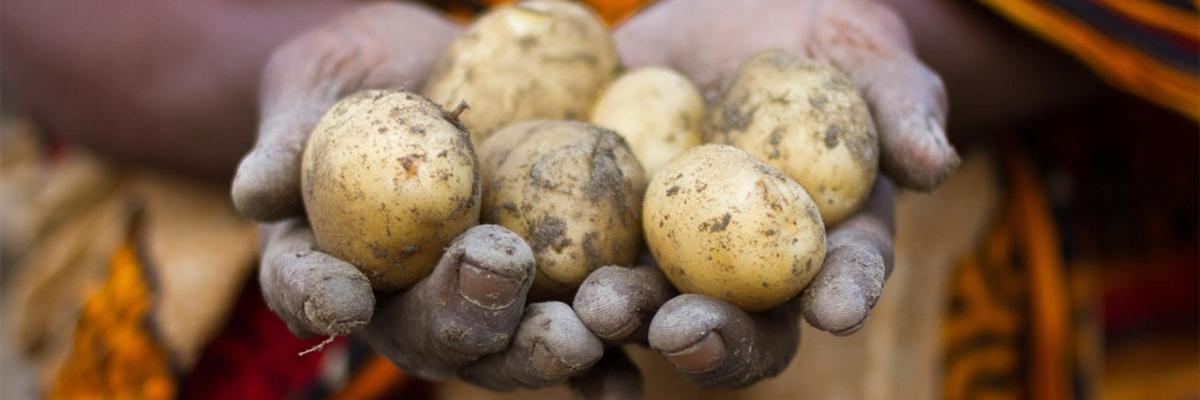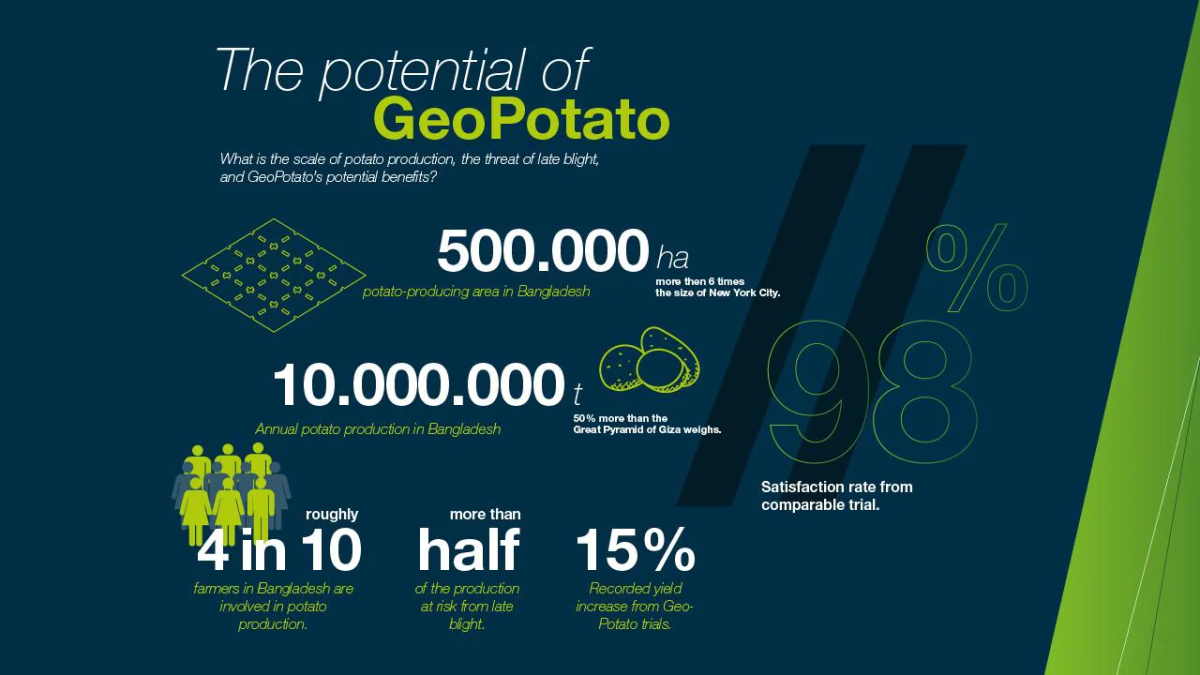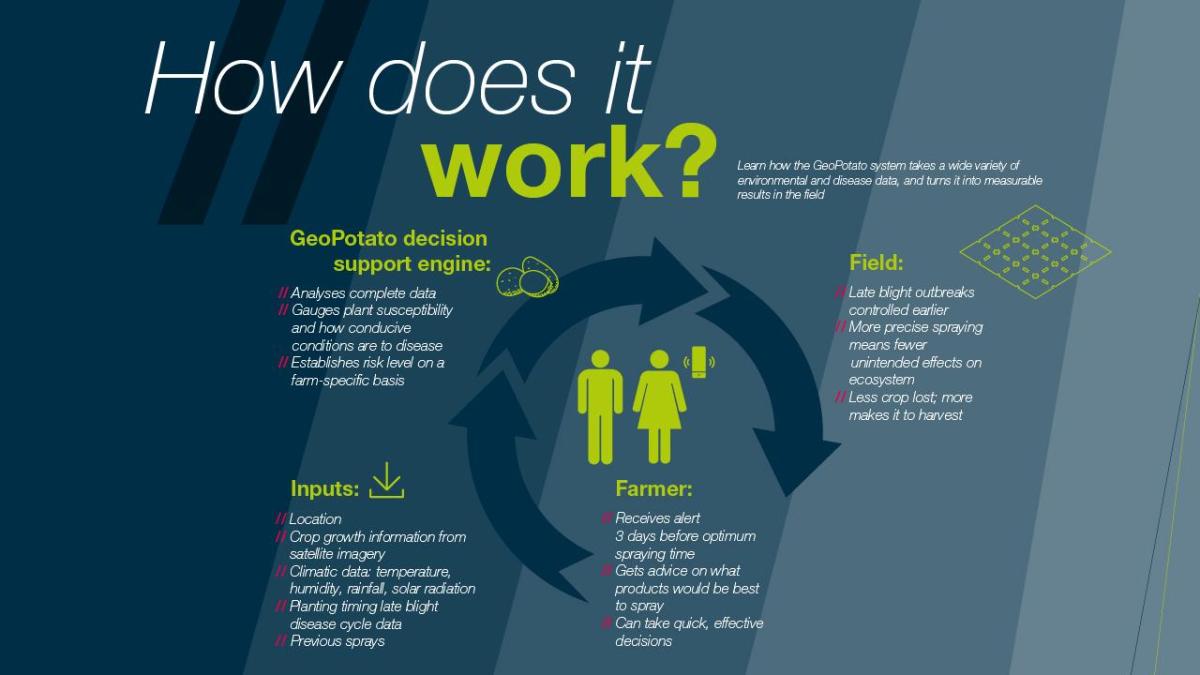GeoPotato: How Data Gives Bangladesh's Potato Farmers a New Tool in the Fight Against Late Blight
Powered by satellite data and powerful analysis models, GeoPotato is designed to enable preventive spraying, easier crop protection decisions, and improved farmer income
GeoPotato, a geodata-driven early warning system for late blight in potatoes, has entered a full commercial roll-out in Bangladesh, and could reach as many as 1 million smallholder farmers in the coming years.
Devised by Wageningen Plant Research, Terrasphere, mPower, Bayer and governmental institutions, GeoPotato’s cutting edge technology employs a sophisticated risk assessment algorithm evaluating many factors impacting crop development on the field– including satellite data, weather forecasts, disease cycles and crop biomass growth – to assess key risk factors for late blight development (susceptible host, conducive environment and pathogen presence) on a highly localized basis.
When it predicts a disease outbreak, it sends farmers an early alert via SMS or voicemail, three days before the outbreak is forecasted to occur. It also advises which fungicidal product would be most effective to help growers take action in a fast and efficient manner.
After running trials for the last five seasons, GeoPotato was launched publicly on 1 November 2021. To maximize its impact, project partners have reached out to more than 50,000 farmers in key potato-producing areas. Ultimately, they intend to expand it to all of Bangladesh, as well as parts of India, reaching more than 1 million farmers and making a significant step towards Bayer’s commitment of empowering 100 million smallholder farmers by 2030.
Scaling up GeoPotato, scaling up yields
After rice potatoes are the second most important food crop in Bangladesh, but they face a severe threat from late blight, a fast-spreading disease that can devastate as much as 57% of Bangladesh’s potato production each year. Late blight can have widespread and highly damaging effects on farmer incomes and potato prices.
Potato farmers, among many smallholders, face the daily challenge of controlling late blight, while needing to avoid the excessive use of fungicides to protect the environment as well as their cash flow. That is where GeoPotato comes in. By warning of late blight risk before outbreaks actually happen, it enables farmers to a preventive spray application, increasing precision and potentially reducing spraying volumes at the same time as combating late blight.
Ultimately, this means a better outcome for the farmer, in terms of both cost savings, yield increases, and greater confidence that their crop protection solutions will have the desired results.
Participants in the trials reported improvements of up to 26% in yield, and expressed enthusiasm to see GeoPotato continue and grow in the future. A win-win for farmers, consumers and the environment.
What do farmers have to say about GeoPotato?
The main problem in potato farming is late blight. This season, visiting the local retailer, I got to know about the GeoPotato service providing early warnings over SMS. Now, my potato production is higher than last season. At the same time, overall costs went down.Raju Ahmed ,Mayenpur farmer Before late blight attacks even occurred, I was warned by SMS on when to spray, based on weather conditions. Throughout the season I received 10 SMS, which led to better yields. Previously in this type of situation, we would have to ask our local retailer what to spray. But now, as the name of the fungicide is mentioned in the SMS, I didn’t face any difficulties.
Nazmul Hoque, Mithapukur farmer
Compared to the last 2-4 years, this year’s yield is much better. In addition, we have updated our old preconceptions. We used to think that yield would go down if we sprayed Melody Duo or Secure in the middle of the season. But when we sprayed these products in line with the system’s recommendation, it was proven that there is no problem spraying these – in fact, I got better yields by using them.
Md. Limon, Mithapukur farmer
Last year, I got Tk10,000 worth of potato. This year, following the warnings, I got Tk15,000 worth of potato. Even if I spent 500-1,000Tk more on premium crop protection products, it doesn’t matter as I got 5,000Tk worth of extra yield.
Jakir Hossain, Sukurerhat farmer
View original content here.




